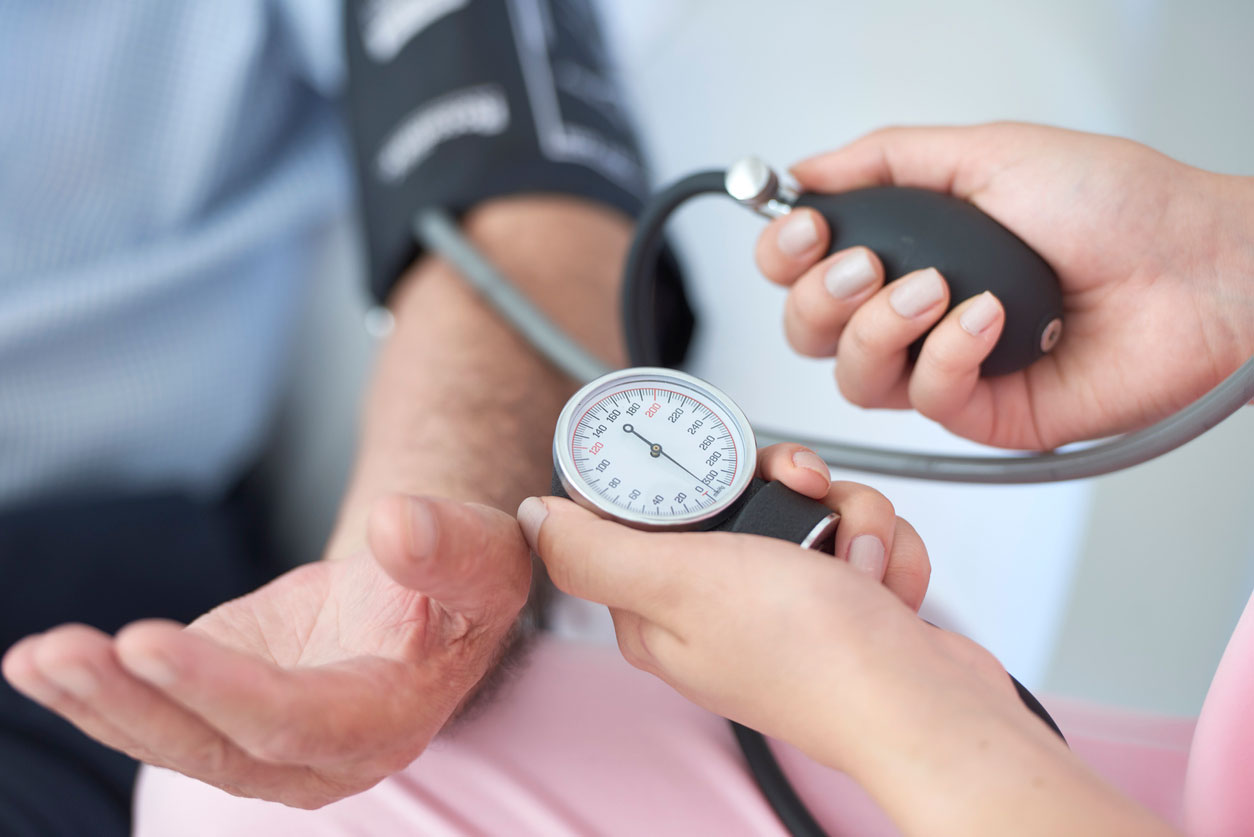
Hypertension, or high blood pressure, can affect anyone. According to the Centers for Disease Control and Prevention (CDC), about 45% of adult Americans have high blood pressure. Moreover, only about 24% of those individuals have their hypertension under control.
Because hypertension can cause cardiovascular disease and organ failure, it is important to have it treated by a family medicine provider. Let’s talk about some of the main signs of high blood pressure and what you can do about it.
What Are the Symptoms of High Blood Pressure?
Hypertension does not always show obvious symptoms, but some of the initial warning signs include the following:
Shortness of Breath
If you find yourself having breathing difficulty even when you are not doing anything at all, you may have hypertension. This is the most common telltale sign for high blood pressure.
Shortness of breath occurs because the heart is having difficulty pushing oxygen-rich blood to the lungs. Moreover, you may have blocked or narrowed arteries in the lungs, in which case the body is not getting enough oxygenated blood.
Blood in Urine
Also known as hematuria, blood in your urine can be a signal that you may have hypertension. It happens because your blood pressure affects your kidneys and vice versa. Kidneys work as filters for your blood, so if you have kidney problems, then you are also at risk for high blood pressure.
Vision Problems
Untreated hypertension can damage the blood vessels in your retina, which is the part of your eye that is responsible for sending neural signals to the brain for visual recognition. If you are experiencing sudden vision problems, seek immediate medical care by an experienced family medicine provider, as it may indicate severe hypertension or another underlying health condition.
Severe Headaches
High blood pressure can cause headaches because of the excessive pressure that it puts on the brain, leading to swelling. The headaches are likely to occur on both sides of the head and may pulsate and worsen when doing strenuous activities.
Vomiting
If vomiting comes along with your pulsating headache, then you may have hypertension. It may also be a symptom of stroke.
Nosebleed
While not a common sign or result of high blood pressure, having hypertension can make you more prone to having a bloody nose. Moreover, severe hypertension can cause your nose to bleed longer.
Seizure or Stroke
When left untreated, hypertension can progress to a hypertensive crisis, which is a severe increase in blood pressure. This can lead to a seizure or a stroke.
Blood Pressure Checks in Palm Beach County
Signs of hypertension rarely show until your condition is already severe, which then puts you at a greater risk of having a heart attack, heart failure, and stroke. That is why it is important to have regular checkups from your healthcare provider.
Here at Advanced Medical Clinic, we are here to be your healthcare partner. As a patient-centered and family-oriented clinic, we provide the best treatments curated for each patient.
To experience this kind of quality service, call us today at (561) 434-1935, or set an appointment online by filling out our appointment request form now. We look forward to seeing you here.

